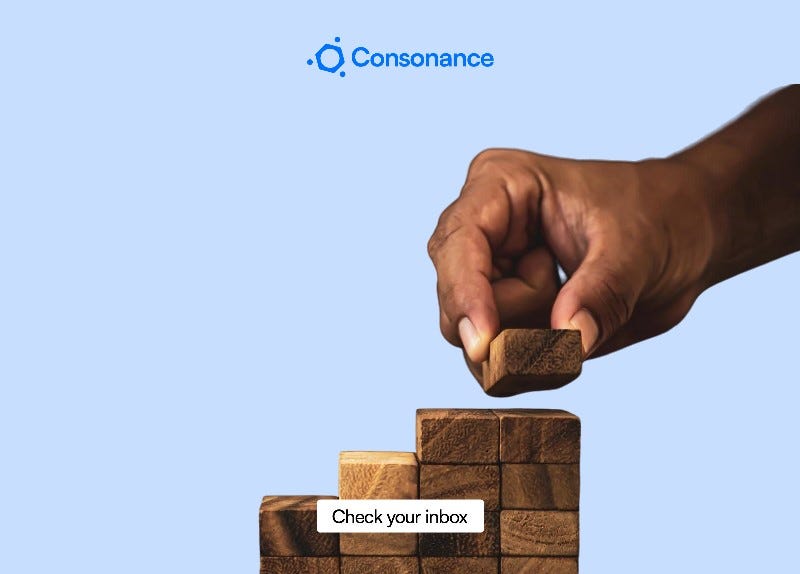Rethinking Growth: How Trust, Community, and Social Proof Drives Tech Adoption in Africa
🤔🤔 Maybe you're not growing because you’re talking to the wrong crowd
Hey, Dear Innovator 👋
Which tech product(s) have you used today? What about the ones that you’re fiercely loyal to, so much that they’ve become part of your daily routine?
Do you remember who told you about it? A friend? Someone you trust?
Chances are, it wasn’t a random ad or a big-name influencer that convinced you to use it (no matter how many times you’d seen it everywhere).
It was probably someone you liked, or someone whose word mattered to you.
Now flip it — that’s exactly how your users choose what products to trust and use! 😲🤗
👇 scroll to the good stuff
In Africa, flashy online campaigns and celebrity influencers often feel like the path to quick growth – but the reality on the ground tells a different story.
Instead of clicking “Buy Now”, many African users often lean on people they know and trust. For example, a report by Nielsen found that 98% of South African shoppers prefer talking about products face-to-face rather than just “tapping” online.
Similarly, in the same study, it was found that 77% of users prefer personal recommendations from friends or family, compared to only 65% that cited social media.
There are several factors at play that causes word-of-mouth to massively outweigh digital hype while driving adoption in Africa. Let’s get into them 😉
The Trust Gap in Digital Africa
One of the reasons why mainstream growth tactics fall flat in Africa is the deep trust gap around new tech solutions.
In many African countries, people still prefer cash or established systems because they don’t yet trust digital alternatives. Onafriq reported that 76% of Tanzanians still prefer cash for purchases and 66% of Moroccans rely on cash despite their growing e-commerce sector.
These figures reflect fear of losing money, so much that a 2024 GSMA report found that Nigerians listed safety and trust concerns as the top barriers to the use of mobile money/fintech solutions, even above the cost of usage or access to it.
The Power of Word-of-Mouth and Local Networks
Because of this trust gap, word-of-mouth seems to be the most effective marketing channel in Africa.
According to Nielsen’s report, the more consumers use social media, the less they tend to trust them. This is because many African consumers have been “burned too many times” by scams online, so they place much higher trust in personal referrals/recommendations.
Beyond mere gossip, community structures also play a big role in driving adoption. These structures are in the form of local churches, farmer cooperatives, trade unions, professional associations, market stalls, etc. These trust-based ecosystems tend to amplify social proof.
How this plays out? Agriculture startups often grow when respected farmers try a new app and tell their neighbours about it. Likewise, healthtech adoption often follows existing healthcare networks: pharmacists, nurses, and community volunteers referring new tools to patients.
To put things into perspective, we’ve listed several that have grown/are currently growing using this approach.
Case Studies: Founders Growing with Community Trust
Here are some concrete examples to show how this works.
📌 PiggyVest (Nigeria)
Odunayo Eweniyi, co-founder of this savings app, credits their growth to peer recommendations — not paid ads.
“Our users are our influencers, our advocates. They like the simplicity of our products, they see medium‑long term results in their savings accounts and then they are compelled to tell their friends and family about us…
PiggyVest built on this momentum built on this momentum by offering ₦1,000 for each referral, turning users into voluntary marketers”
This didn’t get this through expensive campaigns. Just trust, shared in real time, by people who experienced the product.
📌 Wowzi (Kenya)
Wowzi didn’t chase celebrities. They built with everyday people.
In their first 18 months, they onboarded over 70,000 “nano-influencers” across Kenya, Uganda, and Tanzania — all through word-of-mouth. These users later became paid ambassadors, but only after they’d organically shared opportunities within their own networks.
This strategy turned casual users into community marketers — not just because they were paid, but because they genuinely believed in the value.
What This Means for You, Dear Innovator
If you’re building for African users, your biggest advantage isn't your budget. It’s your ability to earn trust and activate momentum within your local networks.
You can do this by:
Building with a community before you broadcast to one
Using your early adopters as trust multipliers, and give them a reason to talk positively about you.
Partnering with already existing groups. This can be churches, trade unions, women’s co-ops, professional bodies, and others.
Prioritising proof of value over just sounding nice on paper. Your users care more about what works than what looks good.
And remember: people don't adopt products in isolation — they adopt what their tribe adopts.
Think About This 👇
Who are the "connectors" in your market, and how do you intend to earn their trust?
‘Cos believe it or not, that’s where your next set of users will come from. Fr though.
Keep innovating and building with people in mind! 💙
P.S
**Connectors are the people others listen to.





